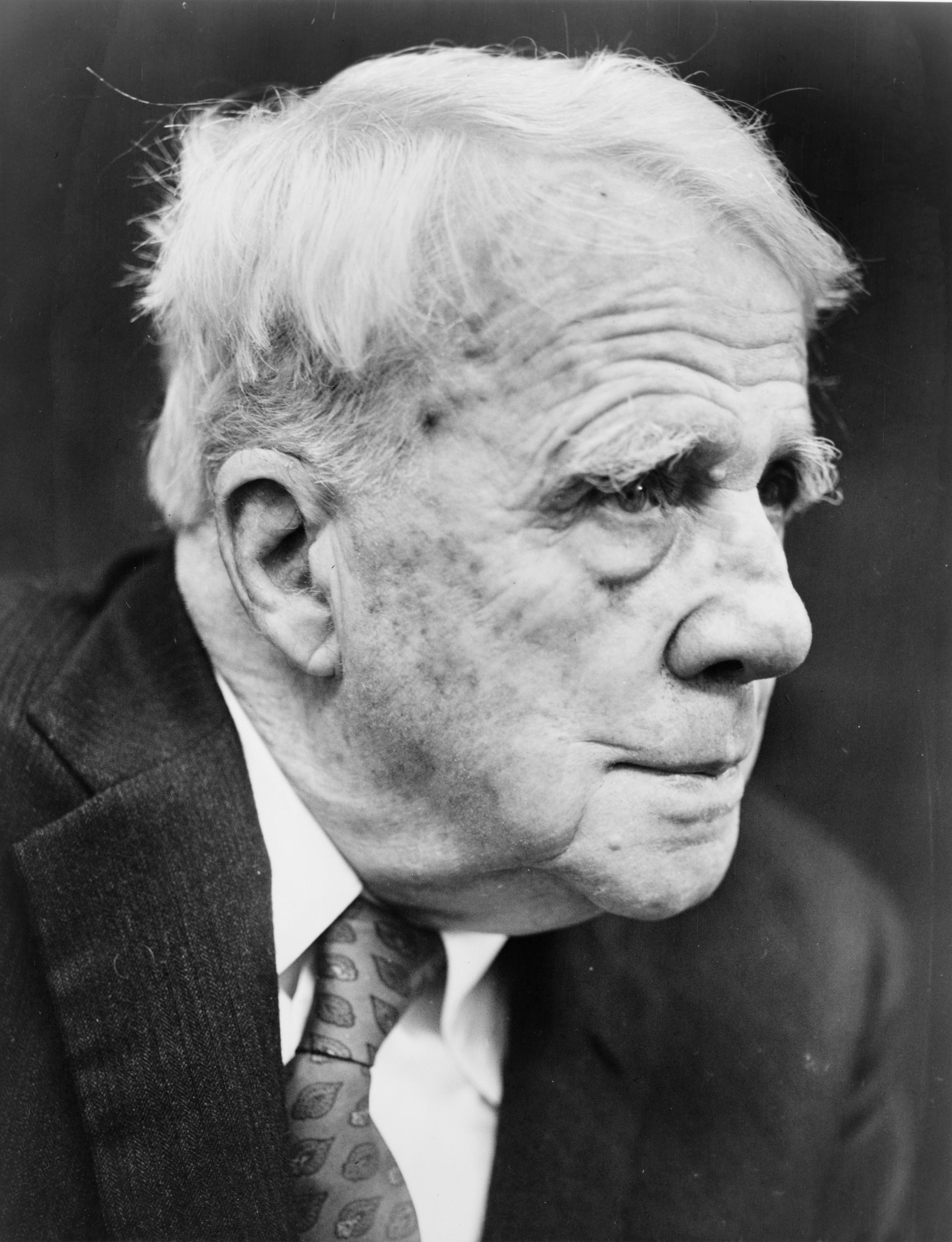
Robert Frost
Robert Lee Frost (March 26, 1874 – January 29, 1963) was an American poet. His work was initially published in England before it was published in the United States. Known for his realistic depictions of rural life and his command of American colloquial speech,[2] Frost frequently wrote about settings from rural life in New England in the early 20th century, using them to examine complex social and philosophical themes.
This article is about the poet. For other people with the same name, see Robert Frost (disambiguation).
Robert Frost
Robert Lee Frost
March 26, 1874
San Francisco, California, U.S.
January 29, 1963 (aged 88)
Boston, Massachusetts, U.S.
Poet, playwright
Dartmouth College (no degree)
Harvard University (no degree)
6
Frequently honored during his lifetime, Frost is the only poet to receive four Pulitzer Prizes for Poetry. He became one of America's rare "public literary figures, almost an artistic institution".[3] He was awarded the Congressional Gold Medal in 1960 for his poetic works. On July 22, 1961, Frost was named poet laureate of Vermont.
Work
Style and critical reception
Critic Harold Bloom argued that Frost was one of "the major American poets".[31]
The poet and critic Randall Jarrell often praised Frost's poetry and wrote "Robert Frost, along with Stevens and Eliot, seems to me the greatest of the American poets of this century. Frost's virtues are extraordinary. No other living poet has written so well about the actions of ordinary men; his wonderful dramatic monologues or dramatic scenes come out of a knowledge of people that few poets have had, and they are written in a verse that uses, sometimes with absolute mastery, the rhythms of actual speech". He also praised "Frost's seriousness and honesty", stating that Frost was particularly skilled at representing a wide range of human experience in his poems.[32]
Jarrell's notable and influential essays on Frost include the essays "Robert Frost's 'Home Burial'" (1962), which consisted of an extended close reading of that particular poem,[33] and "To The Laodiceans" (1952) in which Jarrell defended Frost against critics who had accused Frost of being too "traditional" and out of touch with Modern or Modernist poetry.